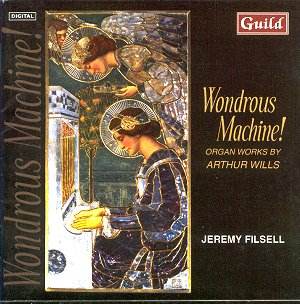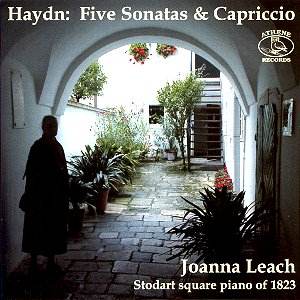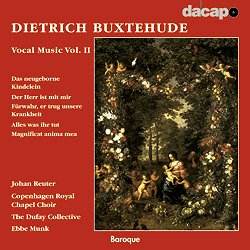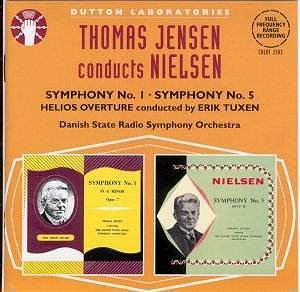 Composer: Arthur Wills
Composer: Arthur Wills
Works: Carillon on “Orientis Partibus” (1976), Song without Words (In Memoriam Sergei Rachmaninov) (1994), Prelude and Fugue (Alkmaar) (1971), Scherzo-Fantasy “The Ely Imps” (1994), Wondrous Machine! A Young Person’s Guide to the Organ – Variations and Fugue on a theme by Henry Purcell (1995), Arioso (from Five Pieces) (1961), Intermezzo (from Five Pieces) (1961), Scherzo “High Hills and Stony Rocks” (1990), Variations on a Carol (1965), The New Millennium Rag (1999), Postlude (1959)
Performers: Jeremy Filsell (organ), Arthur Wills (narrator)
Recording: 24 October 2000, Tonbridge School Chapel
Label: GUILD GMCD 7225
Arthur Wills, a prominent figure in British organ music, offers a rich tapestry of sonority and thematic exploration in his album, “Wondrous Machine!” This collection, celebrating his 75th birthday, showcases works that span nearly four decades, revealing not only his compositional evolution but also his mastery of the organ. Wills, who served as Director of Music at Ely Cathedral for over three decades, brings an ecclesiastical gravitas to the concert hall, yet the works presented here traverse both sacred and secular terrains, inviting listeners into a multifaceted auditory experience.
The recording begins with the exuberant “Carillon on ‘Orientis Partibus’,” a piece that sets the tone with its vibrant toccata-like energy. Filsell’s performance is marked by clarity and precision, effectively employing the organ’s full tonal spectrum to evoke the grandeur of cathedral acoustics. The subsequent “Song without Words,” inspired by Rachmaninov, is a poignant homage that, while distinctively Wills, resonates with the emotional depth characteristic of the Russian master. Wills’s decision to create an original work rather than a transcription underscores his creative intent, and Filsell’s interpretation imbues it with a lyrical sensitivity that captures the essence of both composers.
The “Alkmaar” Prelude and Fugue stands out as a formidable undertaking, reflecting Wills’s admiration for the North German organ tradition. Here, Filsell navigates the intricate counterpoint with apparent ease, showcasing technical prowess that rivals the best interpretations of this genre. The fugue’s subject is treated with both respect and innovation, allowing for a thrilling build-up that culminates in a resounding conclusion. Filsell’s articulate phrasing and dynamic contrasts reveal the piece’s structural complexity while ensuring accessibility for the listener.
Wills’s “The Ely Imps,” inspired by the whimsical gargoyles of Ely Cathedral, captures a sense of playful mischief through its lively rhythms and imaginative use of plainchant as a thematic underpinning. The piece whirls with energy, and Filsell’s performance highlights the joy inherent in Wills’s writing, making it a delightful addition to the program. The “Wondrous Machine!” suite demonstrates Wills’s flair for pedagogical composition, cleverly recycling Purcell’s themes to engage younger audiences while maintaining a sophisticated compositional approach. The narration, provided by Wills himself, offers context but may distract from the music’s inherent charm; a purely instrumental interpretation could have allowed the work to shine even brighter.
The Variations on a Carol, based on Wills’s own composition from 1965, showcases a vibrant dialogue with French organ traditions. Filsell’s adeptness with the idiom shines through, as he navigates the eleven variations with both flair and finesse. The infectious energy of the “New Millennium Rag,” cleverly disguised in hymn-tune pastiche, and the jubilant Postlude conclude the recording with an exuberant flourish, encapsulating Wills’s innovative spirit and technical mastery.
The engineering quality of this recording is commendable, capturing the organ’s rich tonal palette and allowing the listener to appreciate the nuances of Filsell’s performance. The resonance of the Tonbridge School Chapel organ is beautifully rendered, creating an immersive listening experience that highlights Wills’s intricate textures and dynamic range.
This release serves as an engaging tribute to Arthur Wills, affirming his significant contribution to organ music. Jeremy Filsell’s virtuosity and interpretative insight ensure that each piece is not only performed but vividly brought to life. “Wondrous Machine!” stands as a testament to Wills’s enduring legacy, appealing both to dedicated organ enthusiasts and newcomers alike.



